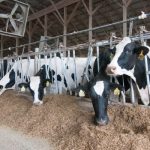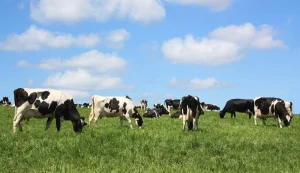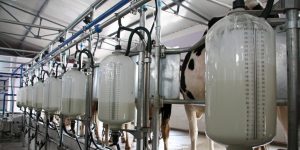
The Australian Dairy Industry Council also called for the government to stop plant-based products misrepresenting dairy nutrition.
“The issue of plant-based products falsely leveraging the dairy industry is a long-standing problem in this country,” ADIC chair Rick Gladigau said.
At a public hearing for the Senate inquiry into the definitions of meat and other animal products, ADIC representatives called on government to support measures to address this market failure.
Mr Gladigau said the Australian dairy industry had extremely strict standards of identity to be able to call a product milk, cheese or yoghurt.
“We follow strict standards of identity for all our products that gives us permission to use those dairy terms, and unfortunately the plant-based products don’t have that,” Mr Gladigau said.
The plant-based products went to market with a huge variation in nutrition and with little evidence to support the health and sustainability claims that they were making.
“On our retail shelves, we see plant-based products using dairy terms or descriptors like ‘milk’ and ‘cheese’ despite not having those terms in their ingredients; images of cows being used in marketing despite cows not being part of the production process; and statements that infer nutritional equivalence to or better than dairy despite the contrary,” Mr Gladigau said.
“This is a clear market failure in the form of an information asymmetry, which requires government intervention.”
The dairy industry has been advocating for fair labelling and marketing since the 1980s.
Mr Gladigau told the Senators that as a minimum the Australia New Zealand Food Standards Code needed amendment.
Specifically, ADIC called for the removal of Clause 1.1.1-13(4) from the Code.
This states that “if a food name is used in connection with the sale of a food (for example in the labelling), the sale is taken to be a sale of the food as the named food unless the context makes it clear that this is not the intention”.
The clause uses “milk” as an example by saying “the context within which foods such as soy milk or soy ice cream are sold is indicated by use of the name soy; indicating that the product is not a dairy product to which a dairy standard applies”.
Mr Gladigau said Australia needed to address its non-compliance with the Codex Alimentarius, the global collection of standards, guidelines and codes of practice adopted by more than 180 countries, including Australia.
It is governed by a commission established by the Food and Agriculture Organisation of the United Nations and the World Health Organisation.
The Codex General Standard for the Use of Dairy Terms (CODEX STAN 269) defines milk as coming from mammals and sets out where, when and how dairy terms may be used and where they may not.
“We find it unacceptable that Australia is a signatory to an international standard or agreement and has consistently failed for a very long time to comply,” Mr Gladigau said.
Mr Gladigau told the Senate inquiry, many other countries were ensuring compliance to Codex by either banning the misuse of dairy terms outright, as in Europe and Canada, or by requiring clear distinction between the two, as in the United States.
Mr Gladigau called on Australia to follow suit, saying there was proof that Australian consumers’ perceptions about dairy products had been affected by the misuse of processed, plant-based alternatives to dairy.
He highlighted the results of the annual Dairy Australia Trust Tracker survey that has found every year since 2018, that between 45 and 54 per cent of respondents said the main reason for buying plant-based beverages was because they believe them to be healthier than dairy milk – when that was not the case.
Mr Gladigau said Australian Dairy Farmers, of which he is the president, and the Australian Dairy Products Federation had worked together as part of an industry taskforce to obtain consensus on this issue.
“In the spirit of this intent and knowing the difficulty we have had previously on achieving regulatory change, we agreed to develop a voluntary industry guideline to resolve this issue,” Mr Gladigau said.
“If this can be produced and is successful, then we would be happy with that outcome.
“If not, then we call on all political parties to agree to a policy of changing the Food Standards Code consistent with what I have outlined.”
ADPF executive director Janine Waller, said the Australian dairy industry had agreed to a voluntary approach as a pragmatic measure, but that it required clear compliance measures and an early review period.
A regulatory change, such as removal of the clause 1.1.1.13 (4) in the Australia New Zealand Food Standards Code remained a long-term goal.
ADF director of strategy and policy Craig Hough and Dairy Australia human health and nutrition policy manager Melissa Cameron provided policy and technical expertise to the ADIC at the hearing.
























